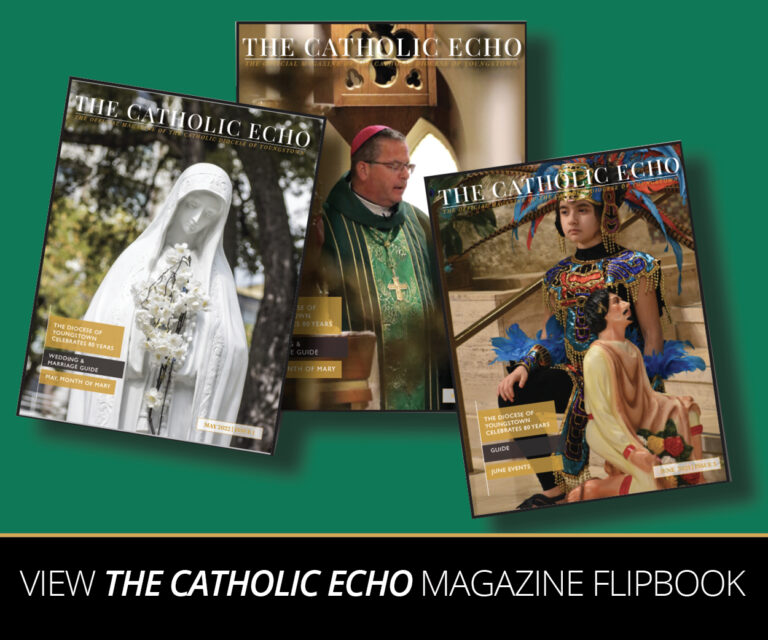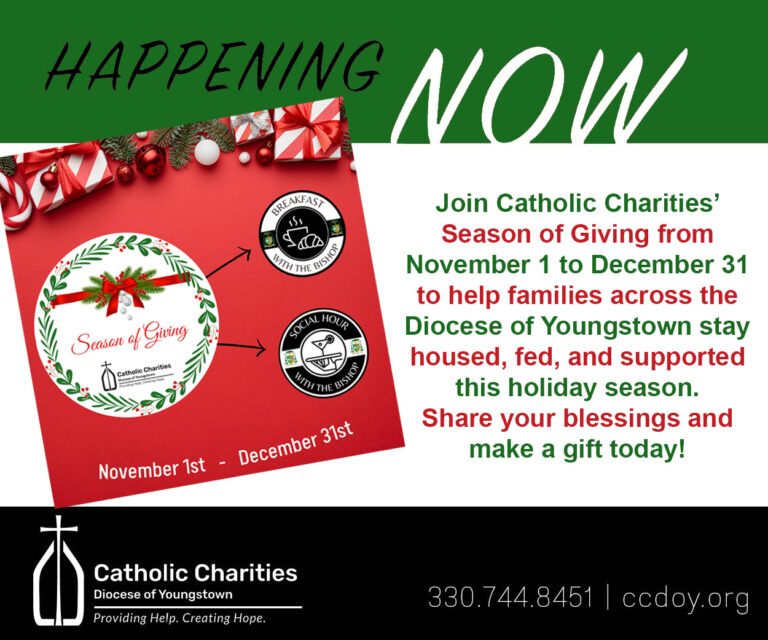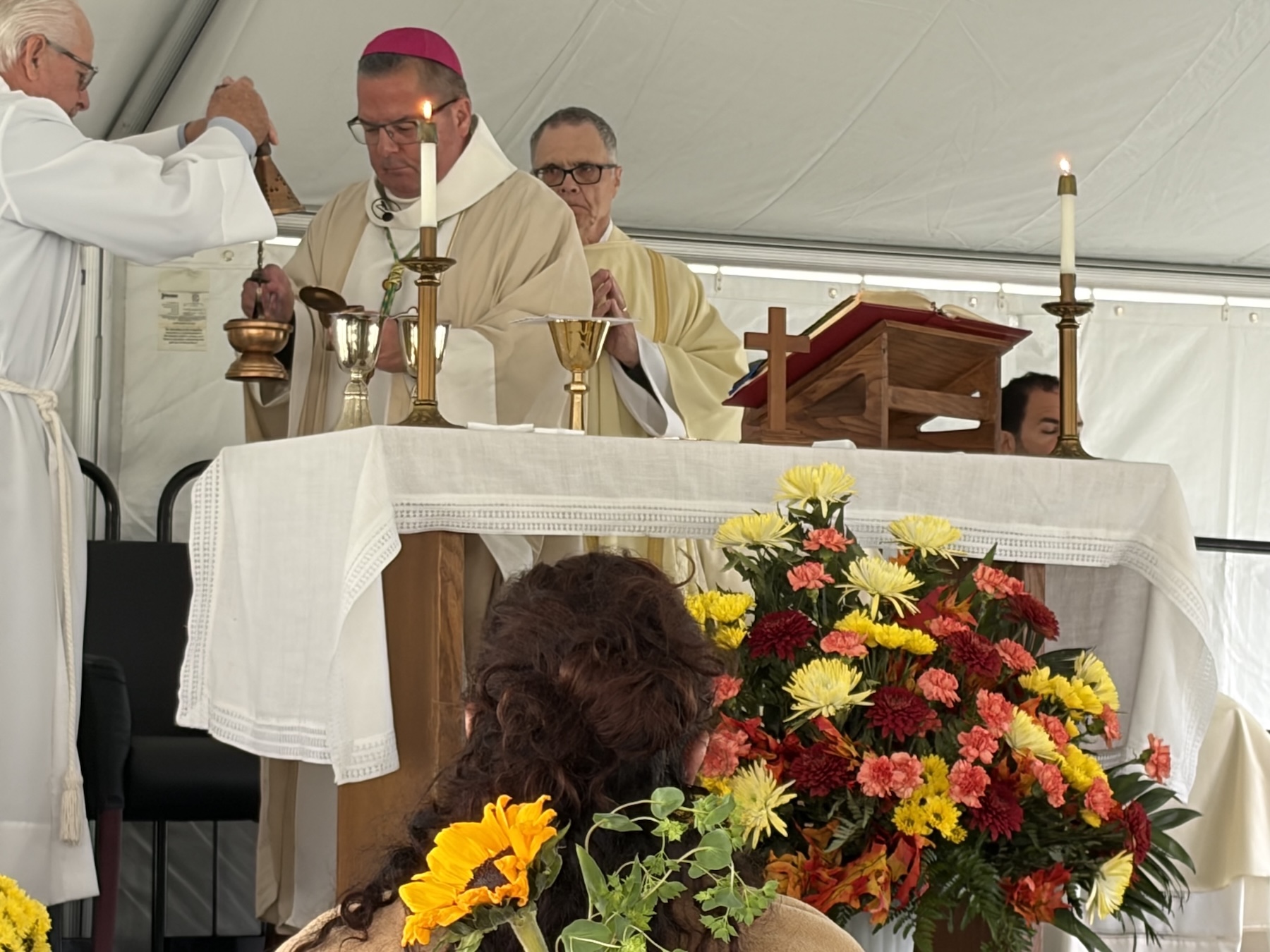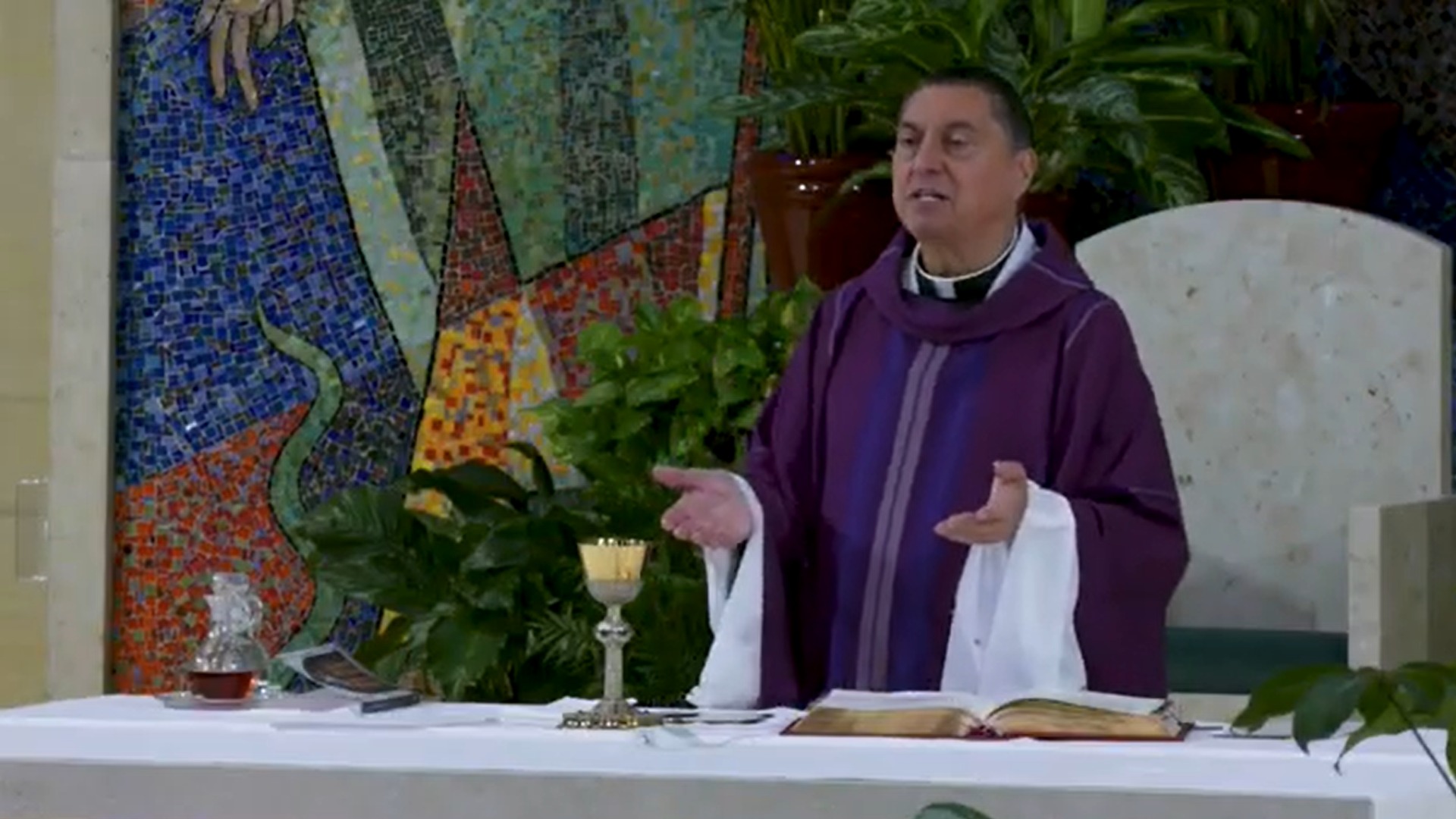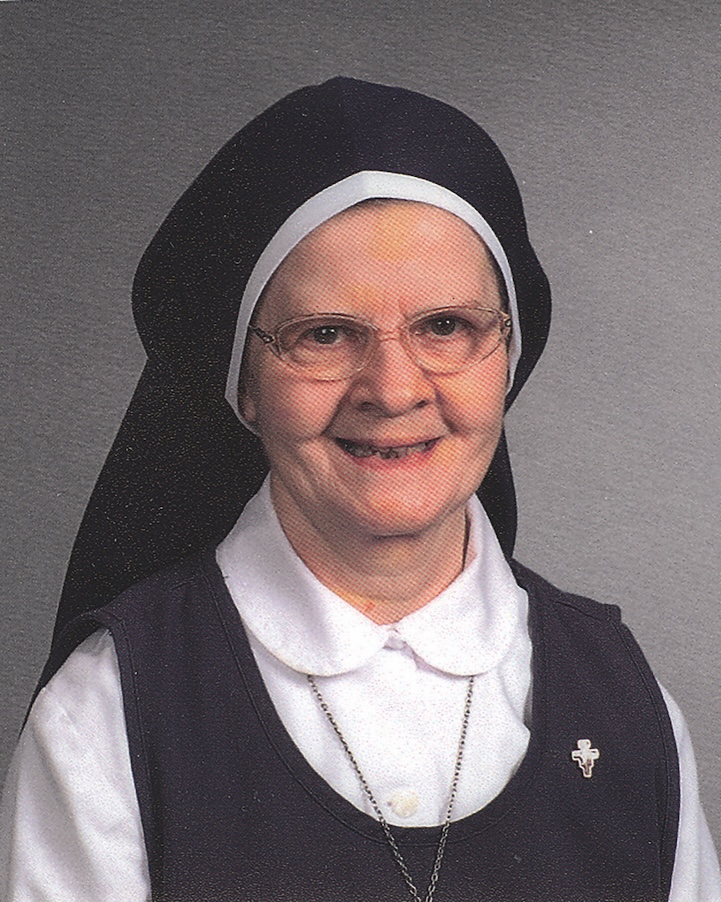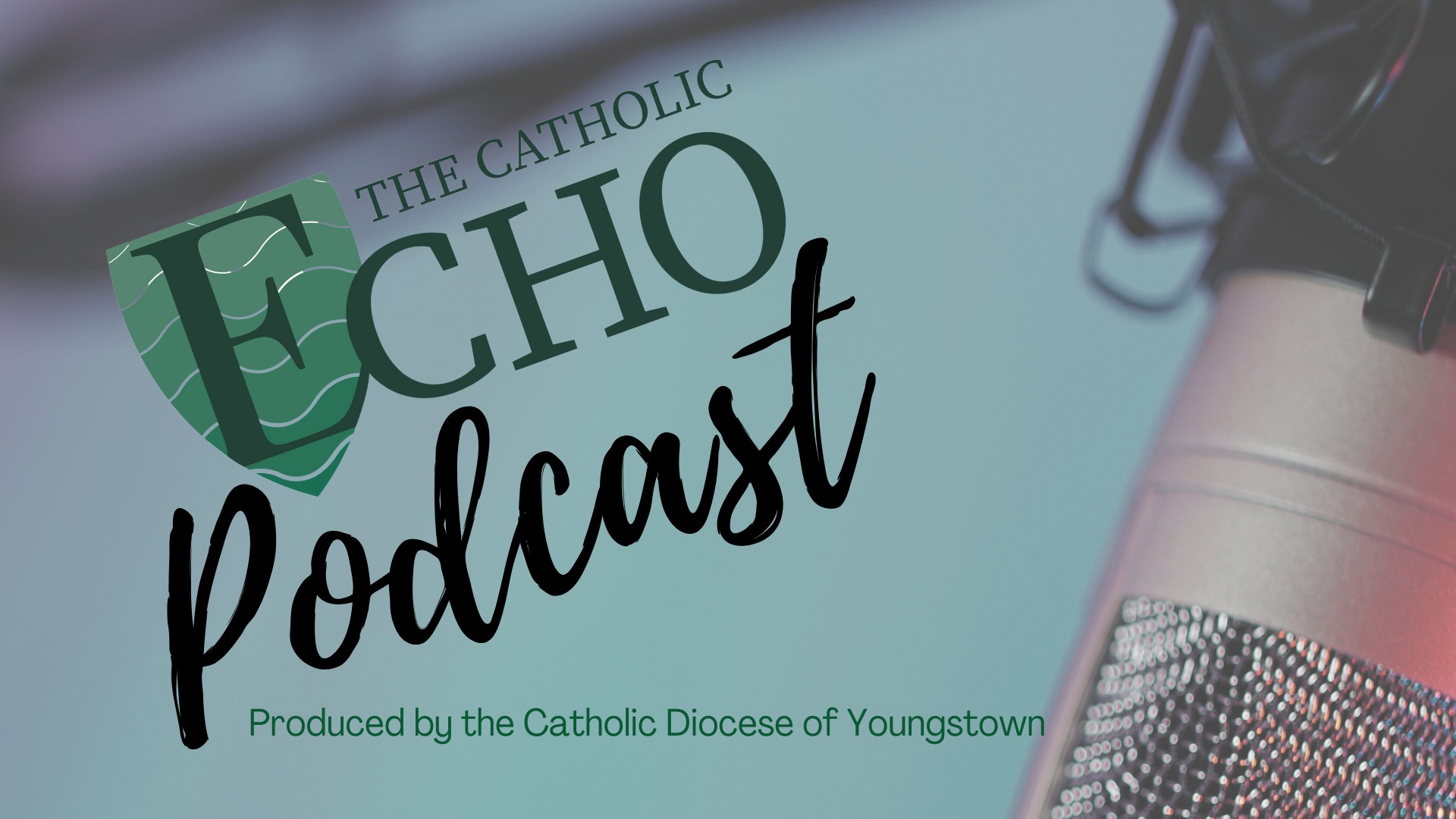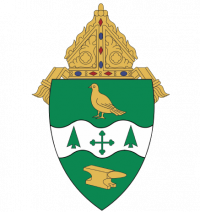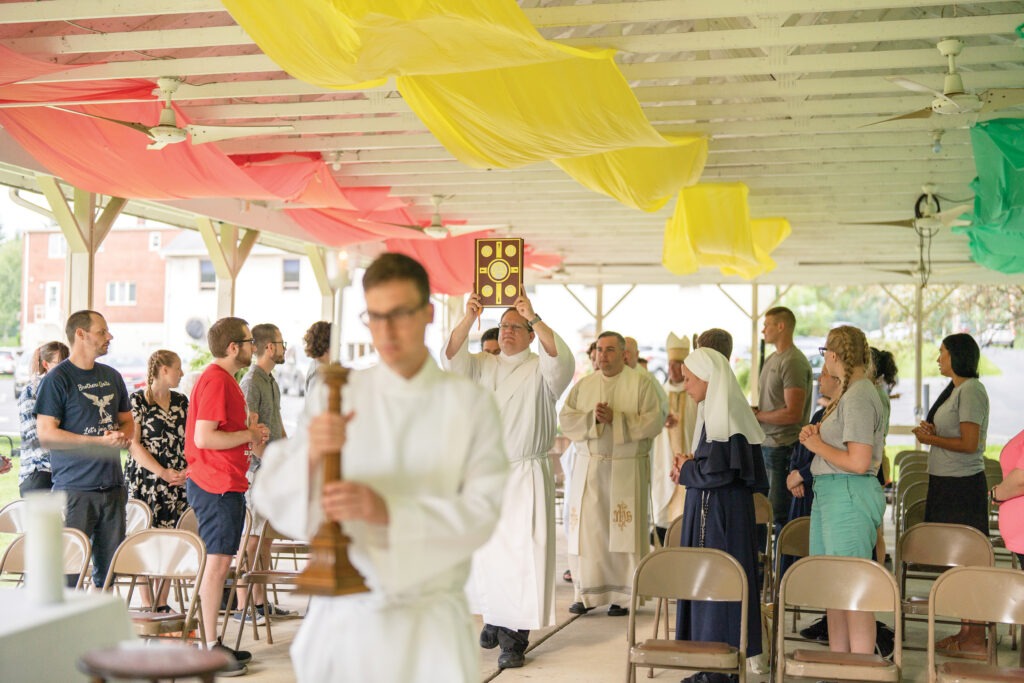
World Youth Day began almost by accident. Though the first official World Youth Day took place in 1986, the event truly manifested two years earlier, in 1984, when Pope Saint John Paul II invited a gathering of the faithful to Rome for Palm Sunday, to celebrate the Youth Jubilee of the Holy Year of Redemption.
It was estimated that nearly 60,000 pilgrims would make the trip. In actuality, more than 250,000 people, from all over the world, took up the invitation.
Pope Saint John Paul II was so moved by the enthusiasm and passion demonstrated by those pilgrims that he called for another such gathering the following year, 1985, which had been declared by the United Nations as the International Youth Year. This gathering was even bigger than the first, with more than 300,000 attendees convening in Rome to celebrate and experience their faith in a universal context. On December 20, 1985, Pope Saint John Paul II announced the creation of World Youth Day as an institution.
In the subsequent decades, World Youth Day, a gathering of young adults that also welcomes high school youth, has truly become a monumental event. Millions of pilgrims have traveled the world to take part in the sacraments, to meet and celebrate with their peers, and to participate in the Universal Church. The global event moves to a different host city each time and it is held every few years. For example, the next global World Youth Day event will be held in Seoul, South Korea, in 2027. Locally, many dioceses around the world have their own World Youth Day celebrations—often in conjunction with the global event—such as the Diocese of Youngstown’s recent World Youth Day Summer Festival.
This year, World Youth Day was held in Lisbon, Portugal, from August 1 to 6, bringing nearly two million pilgrims to the city. Among those pilgrims were siblings Matthew Chamblee, 17, and Anna Chamblees, 15, along with their mother Ellie. Parishioners at St. Paul Parish in North Canton, they traveled with a group from Colorado, as Ellie’s Colorado-based father bought the tickets.
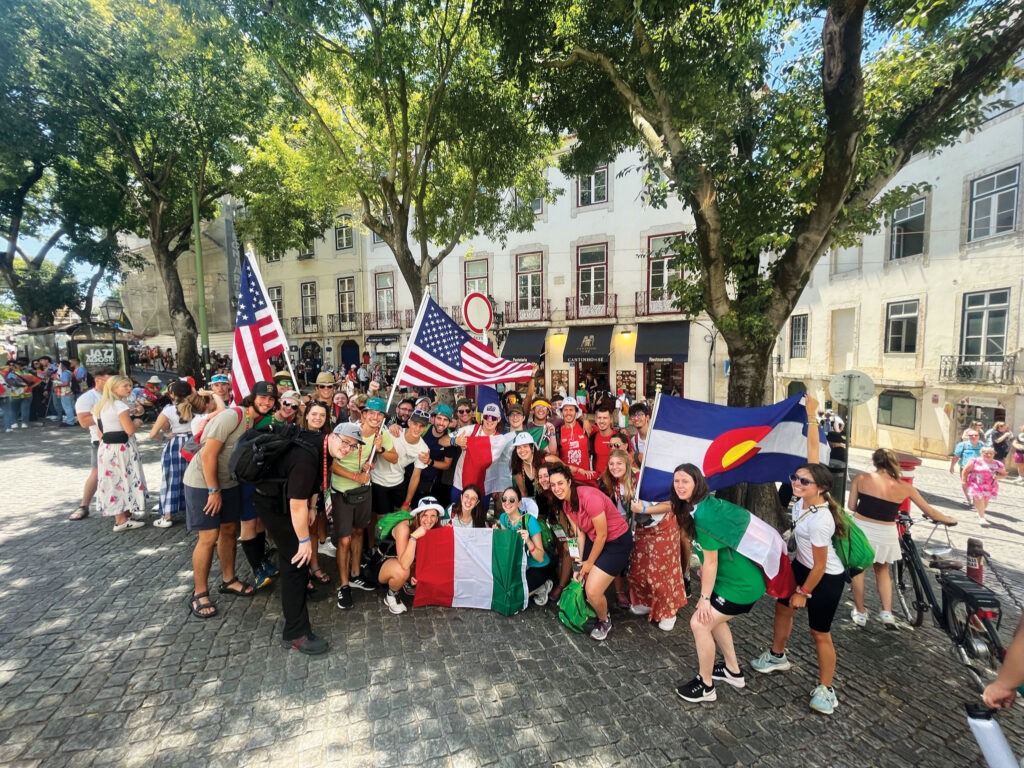
“We came home from school one day and [my mom] was saying, ‘You want to go to Portugal?’ and I was like, ‘Yeah!’” Anna recalled with a laugh.
Matthew and Anna were amazed by the size of the crowds—there were more than 350,000 worshipers at the opening Mass—as well as by the distances those crowds had traveled to be there. Matthew said that one of the most impactful things he experienced at World Youth Day was seeing the true universality of the Church.
“The city was crowded … and about 90 percent of the people were from World Youth Day, and every group had one or two or more flags. It was very common to just walk up and say, ‘Where are you guys from?’” Matthew said. “Hearing them pray in their native languages was … really cool. You’re so used to hearing [prayers] in English.”
All three of the Chamblees said that the Adoration of the Blessed Sacrament, presided over by the Pope as part of the vigil on August 5, was especially powerful.
“IT WAS QUIET, WHICH WAS REALLY COOL CONSIDERING THERE WERE OVER A MILLION PEOPLE [THERE],” ANNA SAID.
Ellie was also stunned by the stillness and reverence displayed by the enormous crowd. “Everybody knelt down, and everyone was silent,” she said. “I get goosebumps thinking about it because there were 1.5 million people kneeling down in adoration, all at the same time.”
Matthew said he’s never seen a Eucharistic Adoration quite so reverent. “It was just dead silence.”
The next morning, which brought the final day of World Youth Day 2023, the family attended the Missioning Mass—celebrated by Pope Francis—with nearly two million other Catholics from all over the world. And after that, it was time to begin the long journey home and ponder what they’d learned from the experience.
For Matthew, this pilgrimage to World Youth Day built upon powerful encounters with God he had experienced at regional youth ministry camps and in youth ministry activities at his parish, as well as liturgical ministry at Sancta Clara Monastery in Canton. Anna also noted many of these past experiences and felt that her experience of World Youth Day was God calling her to live her faith more visibly and vocally among her peers. Seeing millions of people making such a genuine and powerful gesture of commitment to their faith was profound for her.
“I think a lot of people can get really scared … to say anything about their faith because they [think] ‘No one can back me up’ or ‘They’re going to look at me and think I’m weird,’” Anna said. “But knowing that you literally saw two million people that were doing the exact same thing you were—it just builds up a lot more confidence.”
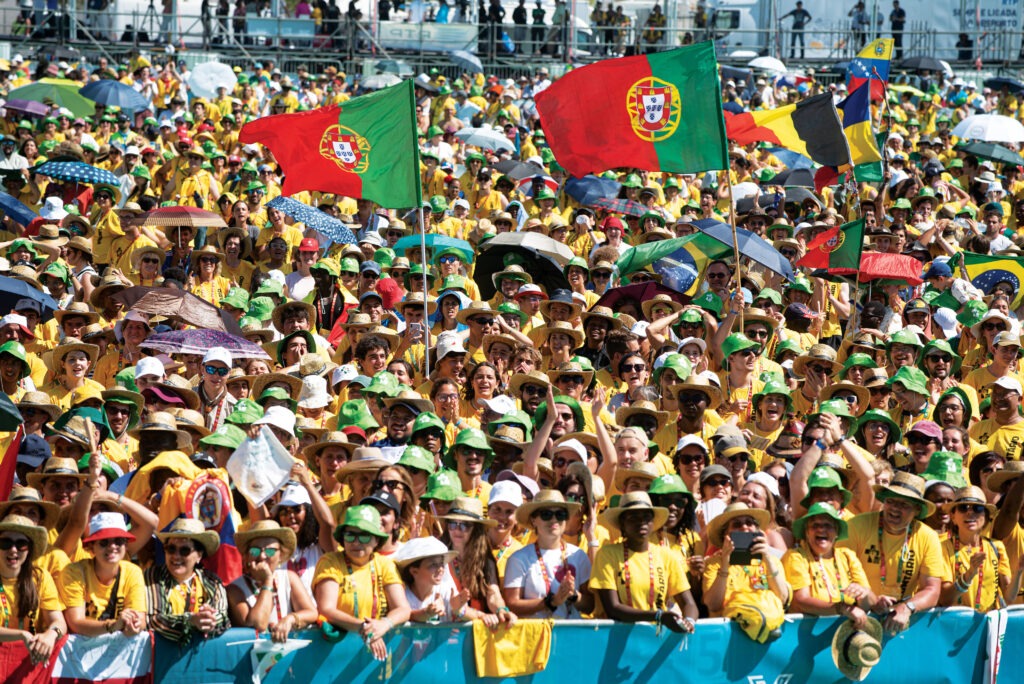
Nicole Uerling, campus minister and religion teacher at Ursuline High School, was a young Catholic in more ways than one when she attended World Youth Day in 2016. Uerling, raised in the Dutch Reformed Church, became Catholic after she got involved at the Newman Center at the University of Wisconsin-Platteville, where she went to college.
Two things about Catholicism appealed to her especially. First was the hospitality of the people she encountered at the Newman Center—people were always asking her to get involved with things around campus and were generally concerned with her life and development. The second was the sacrament of the Eucharist. For Uerling, the Eucharist represented true community—a community of which she knew she wanted to be a part.
“At the end of the day, if you want to know why I do what I do, the Eucharist compels me,” Uerling said. “When we all come together, and we’re all sharing in the Eucharist and saying ‘[I’m] consuming Christ because I want to be more like Christ, and [I] want to bring him to the world and be Christ’s presence and His love and His mercy to other people.’”
After becoming Catholic, she realized she wanted her faith to be the focus of her career. Soon after graduating from college, she began working at the Newman Center at Youngstown State University, and in 2016, Uerling made the pilgrimage to Krakow for World Youth Day.
She was nervous about going on such a big trip, but those fears quickly faded upon realizing that there were millions of other people doing the same thing, she said. There were more than 500,000 pilgrims present for the opening prayer service, and more than a million for the closing Mass. Experiencing the sacraments alongside so many people reminded her that she was part of something much larger than her own church community.
“The sheer size of it is phenomenal,” she said. “I think sometimes youth or young adults feel written off by the Church, so this is a place where the Pope is saying ‘No, be here, come together.’ It really is his way to intentionally address the young people in the Church …
THE YOUNG CHURCH IS ALIVE AND WELL, AND I THINK THAT’S SO EMPOWERING TO SEE AND BE A PART OF AND THEN TO BE ABLE TO BRING BACK AND TELL OTHER PEOPLE.”
Seeing the universality of the Church was eye-opening for Uerling, as was seeing the places where Pope Saint John Paul II grew up and initially engaged with his own faith. It hit home for her in an entirely new way.
But it wasn’t just her witness of the largeness of the Church that made such an impact on her—Uerling’s experience at World Youth Day profoundly affected the timbre of her spirituality. The theme of 2016’s World Youth Day was “Blessed are the merciful, for they will receive mercy,” taken from Matthew 5:7, and this message has become a guiding light in Uerling’s faith life ever since, an aspect of God that she sees manifested all around her.
Uerling recalled how, as part of the pilgrimage, she toured Auschwitz along with thousands of other Catholics—a harrowing experience, even when surrounded by so many other people. When she and her group returned to their tour bus, one of the priests with them suggested they pray the Divine Mercy Chaplet, a prayer revealed to Saint Faustina Kowalska by Jesus Christ. It was the first time Uerling had ever heard the prayer, and she now returns to it frequently. It will always have a special significance to her.
As Uerling sees it, when young people go on pilgrimage to World Youth Day, they’re reminded of several important things—that they are connected to something larger than themselves, that they are loved by God and most crucially, that the Church needs them.
“I see a lot of kids [who] feel like they’re not good enough. [As] Pope Francis says [the Church] is a field hospital. You don’t have to be perfect to be part of the Church—in fact, none of us are,” Uerling said. “The Pope reminds [us] that God loves young people and that young people have a role to play in the Church today.”
While the enduring popularity of World Youth Day demonstrates that there are millions of young adults looking to meaningfully interact with their faith, Diana Hancharenko, young adult minister for St. Angela Merici Parish in Youngstown who served as chairperson to the United States Conference of Catholic Bishops’ National Advisory Team on Young Adult Ministry, said that parish-level approaches to both Youth Ministry and Young Adult Ministry need to be differentiated, and more personalized.
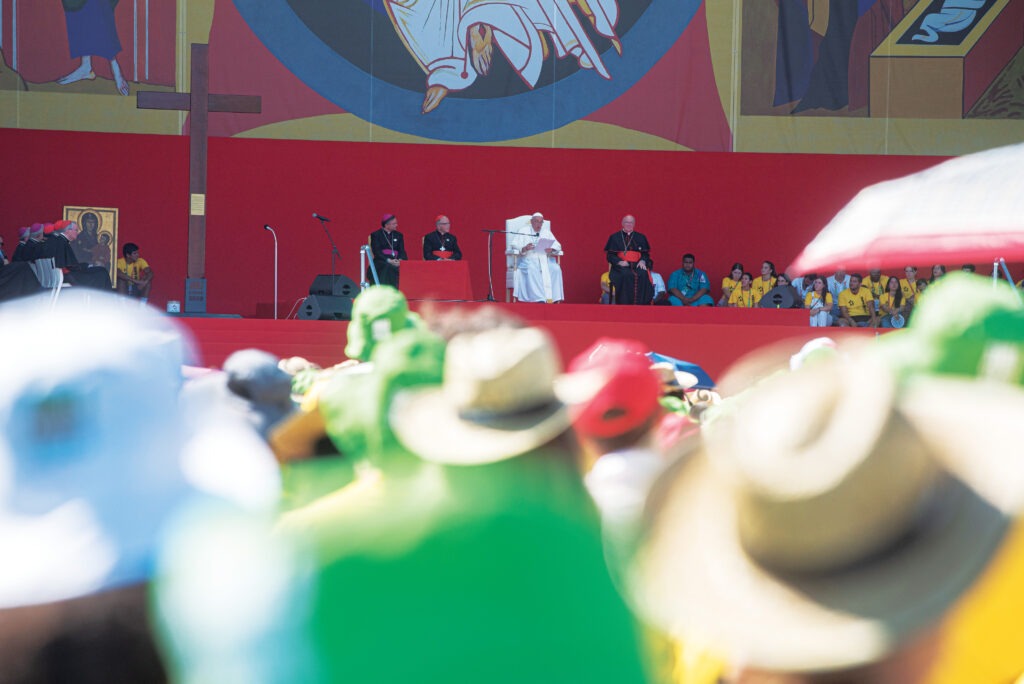
“You try to get as much economy for your time and money, so we make everything event-based,” Hancharenko said. “Events are great … but they aren’t everything. There has to be something after the event to tap into when that event is over … It’s very rare that a one-off event can do everything that it needs to do to bring a person long-term into [our] community.”
Hancharenko emphasizes the focus should be on building relationships—and that can only be done through listening. She referred to Pope Francis’ 2013 apostolic exhortation Evangelii Gaudium, where he calls for a person-to-person sharing of the Gospel, “The first step is personal dialogue, when the other person speaks and shares his or her joys, hopes and concerns for loved ones, or so many other heartfelt needs.”
Indeed, World Youth Day pilgrims Matthew, Anna and Nicole all pointed to the ways that local parish ministers and others had mentored them. Matthew described his positive experiences of youth ministry—especially community outreach—at St. Paul Parish. He has also participated in faith sharing opportunities at the Basilica of St. John the Baptist and St. Peter Parish in Canton and enjoyed what he called the “format of deep-diving into theology” that he experienced in those group discussions.
Anna recounted the importance of an intergenerational relationship which she experienced through service. “When I was preparing for confirmation, I spent time with an elderly sick nun at the Sancta Clara Convent named Sister Joan. She was so joyful and happy to see me. She would smile through our conversations and I could see the love she had for Christ spilling over and touching everyone around her. That was a really cool experience.”
“A misnomer we deal with a lot, too, is that young adults are very individualistic. That they aren’t interested in community. My experience has been completely the opposite,” Hancharenko said. “They are interested in community, but they also won’t force themselves into a community. If we don’t open the doors for them … they will find where they are wanted.”
For siblings Matthew and Anna, the door to World Youth Day was opened by the financial generosity of their grandfather, and even more deeply by his interest in their spiritual life. Their mother, Ellie, hopes that other grandparents and “senior family members will be inspired by my dad’s generosity and sacrifice.” She also complimented the many parish ministers, youth ministers and catechists who have opened doors for her teenagers.
Hancharenko said that one of the most effective things she’s done as a young adult minister is to position herself as an advocate for the parish’s young adults, helping them to get involved and become leaders in their community. Instead of sticking young adults in a holding tank until they hit a certain age, Hancharenko has focused on making use of the many skills her parish’s young adults bring to the table. For example, whenever the parish is planning a big event, Hancharenko is asking the parish council where young people are being involved and making sure that their voices are being heard.
At the diocesan level, Maddie DiSalvatore—the new director of youth and young adult accompaniment, discernment, formation and missionary discipleship—is tackling these challenges head-on, through a mixture of accompaniment and creating opportunities for young Catholics to feel welcome.
“My hope is to get all of us on the same page,” DiSalvatore said. “The Bishop stresses the Joy of the Gospel [Evangelii Gaudium] … how do we become missionary disciples for others, to inspire them to also become missionary disciples? Personally, I think we need to love people first … [my hope] is to reach the people and bring back those who have left the Church, those who are uninterested. The number of people who don’t believe in anything right now is greater than it’s ever been.”
DiSalvatore—a young adult herself—is proof that there are in fact young adults active in the Church, and that they are already capable leaders within the community. DiSalvatore is looking to inject a little creativity into the diocese’s approach to interacting with youth and young adults, so that even unaffiliated young people will want to get involved—even if it’s just to have a coffee.
“I know it sounds tacky, but [I want] to really make everybody feel welcome,” she said. “A lot of people just don’t have any place to go. There’s a whole identity crisis—first and foremost [people] need to believe they’re a beloved son or daughter of God.”
One of DiSalvatore’s main goals is to emphasize the ministry of presence—reaching out to people individually, getting to know their stories and listening to their hopes and concerns. DiSalvatore knows from personal experience just how impactful accompaniment can truly be—she credits her youth minister from her high school, Saint John School in Ashtabula, as one of the most important influences on her spiritual life.
“Accompaniment is somebody letting you know: ‘I see you. I hear you. I know you, and I love you,” she said.
This year the diocese held its first World Youth Day Summer Festival at St. Robert Bellarmine Parish in Cortland, in conjunction with the global event in Lisbon. By all measures—attendance, involvement and impact—it was a success.
The event included guest speakers, Adoration of the Blessed Sacrament with praise and worship and the opportunity for confession, a Rosary procession, food and fellowship. Bishop David Bonnar celebrated the concluding Mass.
Tune in to the new Catholic Echo Podcast to hear an interview with Maddie DiSalvatore about her role and the diocese’s approach to youth and young adult ministry. The Catholic Echo Podcast will be available on all major podcasting platforms by the middle of November, and you can also listen at catholicecho.org.
